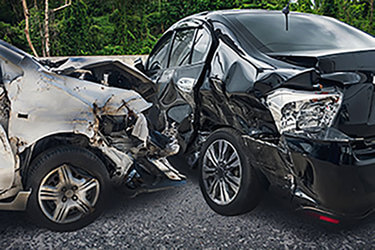


Is Florida a No-Fault State? Short answer: Yes. Florida requires that automobile drivers carry certain types of insurance to provide coverage for injuries and costs resulting from car accidents.
The insurance requirements cover minor medical, property, and other costs sustained from a car crash and help protect drivers from legal liability.
Florida’s insurance laws limit your ability to recover crash-related damages. However, in some circumstances, you may still be able to file a lawsuit.
For a free consultation with one of our experienced Florida car accident lawyers, please call (850) 444-4878 or send an online message today.
Florida is a no-fault state, meaning that drivers’ insurance policies cover the cost of crash-related injuries regardless of who was at fault.
Florida no-fault law requires that every driver carry a minimum of $10,000 in Personal Injury Protection (PIP) insurance coverage.
Unlike at-fault states, where a driver responsible for the accident must pay for injuries and related costs from his or her insurance policy, Florida no-fault law allows coverage from either policy.
An injured driver or passenger may use PIP coverage from their policy or from the other drivers’ policy to cover crash-related medical costs.
PIP coverage usually covers the following costs:
Florida no-fault insurance makes it easier for crash victims to receive payment for their injuries. Under Florida’s law, your insurance pays the medical bills and other financial losses for anyone covered by the policy up to the policy’s limit.
Thus, you do not have to go through the other driver’s insurance company to receive compensation for your injuries and additional costs.
In addition to injuries to the policyholder, PIP policies can also cover:
Although PIP policies can help cover crash victims’ medical costs, Florida’s no-fault law limits a victim’s ability to recover additional damages. No-fault laws protect drivers from legal liability and lawsuits when their PIP policy covers the total amount of crash-related medical costs.
Florida’s no-fault law prevents parties from filing suit so long as the PIP covers the extent of the injuries and related costs. However, subject to certain limitations, you may be able to file suit against the responsible party.
Florida no-fault law allows victims of car crashes to file lawsuits under certain exceptions, including:
However, injured victims must prove that their injury qualifies as a “serious injury” under the law.
Injured victims may file suit to recover damages for crash-related injuries when those injuries cause:
Keep in mind that Florida’s no-fault system does not apply to vehicular damages. In addition to PIP coverage, Florida drivers must also carry Property Damage Liability (PDL) coverage.
But PDL coverage does not protect at-fault drivers from liability. Drivers who sustained property damage to their car may still file a lawsuit to recover costs for the damage to their car.
Although Florida no-fault law limits a car crash victim’s ability to file suit, you may have a valid claim if you meet one of the listed exceptions.
The attorneys at Emmanuel Sheppard & Condon have more than 100 years of experience protecting their clients’ rights and have recovered millions in monetary damages.
Our knowledgeable car accident attorneys and dedicated staff care deeply about our clients’ interests and will handle your case with the compassion and dedication it deserves.
Our law firm offers free consultations and will explain your case and help you understand your legal options. Contact our offices at (850) 444-4878 or fill out an online form today.